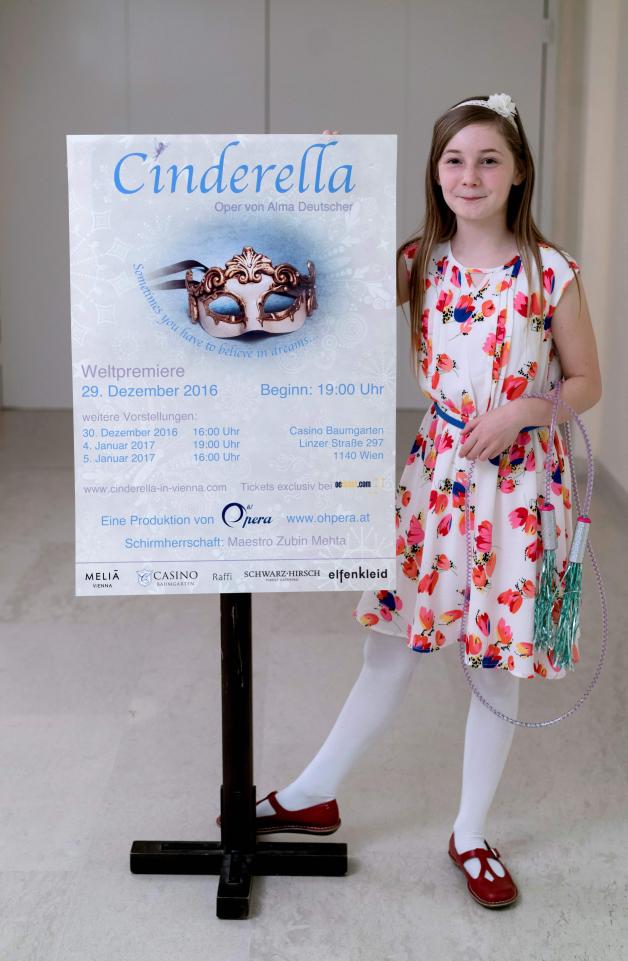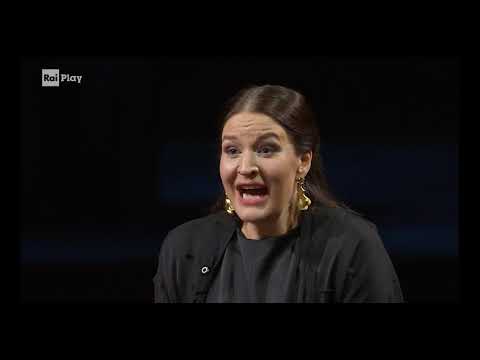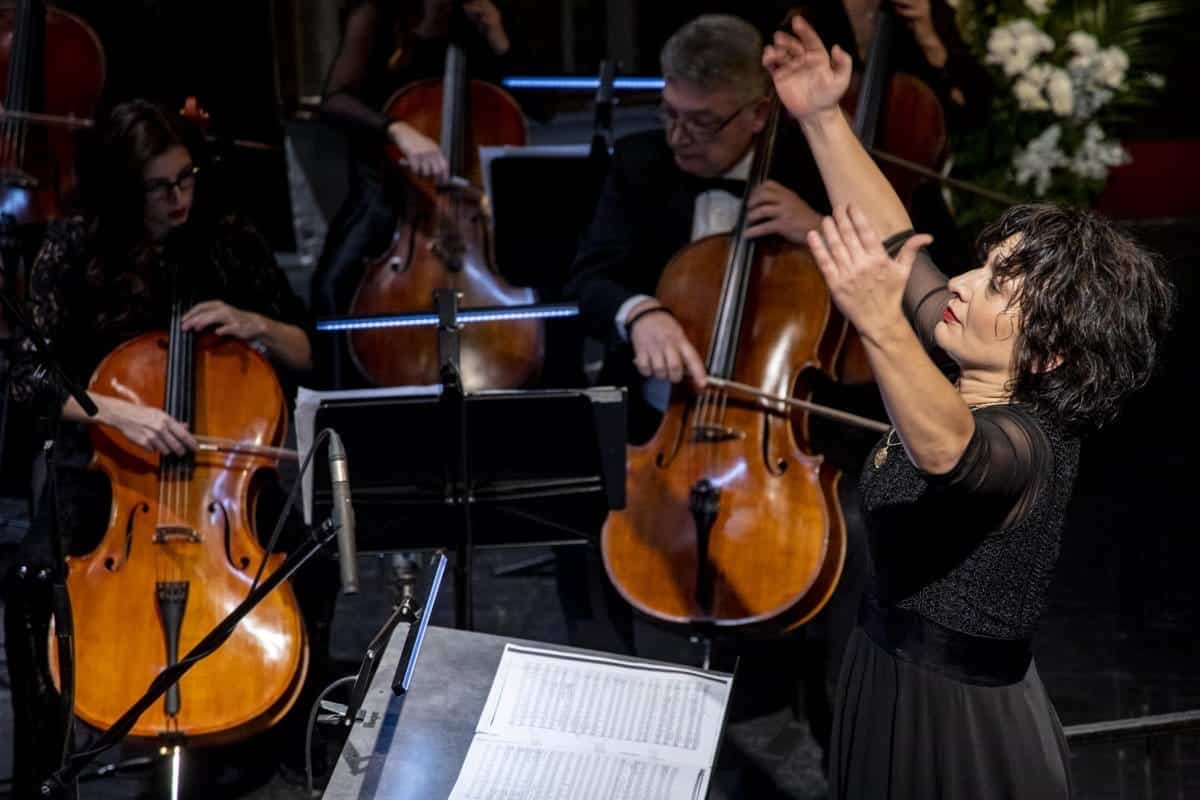Biz news: Columbia Artists signs child composer
mainDoug Sheldon has taken on North America representation for Alma Deutscher, the media-friendly British child who wrote a piano sonata at 6 and an opera when she was nine.
She turned 13 last month.


Doug Sheldon has taken on North America representation for Alma Deutscher, the media-friendly British child who wrote a piano sonata at 6 and an opera when she was nine.
She turned 13 last month.

We’ve been given to understand that tonight’s Lebrecht…

Message from the Vienna-based Russian soprano: “I am…

We’re hearing that the Vienna State Opera has…

The atmosphere in the Serb capital Belgrade just…

Session expired
Please log in again. The login page will open in a new tab. After logging in you can close it and return to this page.
Let’s wish Alama Deutscher good luck and a happy, normal adolescence.
Yep, only I’m afraid her chances of a “normal” adolescence are now blown away and I don’t understand her parents. She may be a genius, but in the first line she’s a child who should be allowed to play, to be with friends, to grow up “normally”.
I know two former “wunderkinder” – and both are not happy about their past and about the way their parents were involved in their early career.Both don’t speak with their fathers anymore (and the one even was on court with hers because he didn’t want to let her go as she was an adult), both say they were robbed of their childhood and while the lady made it through rather well, the boy is still struggling.
I think even if your child is a genius – let it be a child without marketing it! If it’s so great as you think it will be great as an adult also and then it will be able to deal with the public while as a child it isn’t.
Her parents appear to be following here, not leading. As to the rest, you might look at this:
https://slippedisc.com/2017/12/the-fate-of-two-child-prodigies-at-harvard/
Unadulterated rubbish. She is a very lucky incredibly talented young lady, clearly as happy as can be and making the best of such talent. There may not have been a more gifted musician ever, Alma could be top of the list.
Talent like that can not be discarded, she enjoys it and is also getting an education. Just bear in mind her mental capacity and demeanor beyond normal years is way past yours and mine. The criticism is not justified, may even be unkind.
After all the smoke and rhetoric of the “higher critics” and “naysayers” has settled, in the end it is not the academia nor the intelligentsia who shall determine the enduring success of Alma Deutscher’s but the “unwashed masses” the humble concert goer who will have the final say.
@Sherman- I hope that the broad masses attending the Lucerne Festival later this year will have washed, at least.
By then Alma will be 13, an adolescent now, no longer the child. Great big sophisticated audience, all-Alma program (written and/or played) — that’s some weight. Afterwards we’ll be further along. I hope the festival will post it.
Has this sort of thing happened often in Europe? I don’t mean freak shows of little kids, there’s a tradition of that centuries long, but very young aspiring composers in important venues?
Which is it going to be ? The humble concert goer, or the great big sophisticated audience ? It will be whoever will spend the most money on downloads, CD and DVD not a sprinkling of matinee concerts in smaller, but elite venues, until the promoters build up to Andre Rieu like phenomena. They will have years ahead mapped out to maximise returns based on their investment. And already they are promoting merchandise in the form of designer dresses…..
@Violinaccordion Isn’t it true that celebrity in classical music usually radiates outward from critics’ praise, sophisticated audiences, prestige engagements,, recordings? A firehose of money might be able to skirt all that but they don’t seem to be trying that here.
The promotion and merchandising you complain of, however obnoxious & exasperating, doesn’t necessarily reflect badly on “the product.”
Mixed feelings about this, to say the least!
Her music is accomplished pastiche of which any Oxbridge Music scholar would be proud.
I feel the same way. Her TV documentary interview, last year I think, was appalling. The number of voice changes she adopted during that told me all I needed to know.
He signs Jaap van Zweden and then Alma Deutscher? I look forward to their debut album collaboration…
Freak show….all parties involved.
WTF with these comments? Alma Deutscher is a one in a billion, prodigiously gifted, naturally musical young person, let’s just hope she’s left to continue to develop her own unique voice as far as possible from the control of academia and the new music mafia.
As for the accent, it seems to be a quirk of a youthful genius. Exhibit A: Jacqueline du Pré.
It’s a forum, and your opinion is aired like others.
JAcqueline du Pre caught Barenboims Israeli accent very quickly.
Not a good comparison judging by her outcome ?
Agree 100%.
Watch BBC Scotland’s hour-long doc on her, “Finding Cinderella” (masterfully made by the way). Presenter Alan Yentob handles things just right.
This child has tremendous charm and charisma, as well as confidence, focus, approaching mastery on violin & piano (@ age 12), probably perfect pitch and obvious determination and work ethic. She’s diplomatic with adult pros rehearsing her music but never intimidated.
She makes a big effort to answer questions quickly, clearly and fully, presuming nothing. Not easy for a child; very helpful for an aspiring composer.
However this turns out, here now is someone who can make classical look cool to other kids. Why pour scorn on her head?
This was originally a reply to David, agreeing with him.
“develop her language away from the controls of academia”
But what she’s writing now is by definition academic, albeit on quite a big canvas (operas, ballets etc), and with considerable accomplishment.
Copland is very eloquent as regards ” why don’t modern composers write beautiful music like composers of the past?” in this beautifully restored interview: https://m.youtube.com/watch?list=PLUnj1frarvUnPru-0WxwlIo1KXq0yiMQV&v=JnWNjd00_ek
Thanks for the link Hilary, I always enjoy your comments. I also need to to find the time to watch this properly, I love Copland!
Just wanted to comment on his answer to that first question, because it is so important.
He is wrong in this instance, it is indeed a poorly reasoned reply, and yet this viewpoint is common almost to the point where it is these days an accepted truth, and one that needs to be challenged as it lies at the heart of classical music’s creative crisis.
When asked if composers should only write music in the ‘language of our time’ Copland replies: “I would think so yes, after all that is the language that is natural to you, why should I confine myself to the musical vocabulary of the 18th century”…
Well, I would have to ask if the musical language of our time is the musical language that is ever necessarily natural to a composer. Doesn’t the real ‘confinement’ happen when we instead restrict ourselves to these kind of external directives, such as the compulsion to be modern, or writing according to an artificial, fabricated system like serialism? How can that be natural?
In reality, Mozart (for example), did not in any way deliberately set out to compose in the musical language of his day. It became the musical language of his day because he and his contemporaries composed that way. There is a crucial difference.
Most importantly, Mozart, or for that matter Wagner, or Mahler, or Schönberg, or indeed Copland (very much) all fought life-long battles with the establishment in their time, all of whom wished to impose external directive. It matters not whether that compulsion requires one to be traditional, or to be modern. Both are fundamentally anti-creative.
The big problem in our time is that the establishment now has full control and the key to their power-base is the education system.
“In reality, Mozart (for example), did not in any way deliberately set out to compose in the musical language of his day.”
As a sole aim that would be very contrived for sure. However, his early works are often copies of contemporary composers. The gorgeous slow movement of his 2nd piano concerto for instance is lifted from a keyboard piece by Johann Schobert (1740?-1767). At the least, it suggests he wanted to learn his craft from the most up-to-date models. All of this alongside his studies from the Fux counterpoint manual.
I suppose the difference in the 20th Century is that we have immediate access to so much music. Copland mentions this I think.
Sure, but it’s like the early Beethoven-Salieri relationship. That is always interpreted via the filter of the ‘education imperative’ – educators want us to believe that Beethoven would not have been Beethoven without the ‘solid grounding’ he received from Salieri because it suits the narrative, but it’s all just pure speculation. You could make an argument that the opposite might easily be the case, using as evidence the fact that the further in time Beethoven moved from his student days, the better as a composer he got. Perhaps the delay in reaching his creative peak was due to his need to unlearn what he had been taught?
The reason Mozart followed up-to-date models is that earlier music was considered uninteresting, and simply was not available. It was not performed, apart from small circles of experts who cultivated Bach (like Baron von Swieten at the Vienna court). As soon as Mozart discovered Bach’s music, he followed also that example (as Beethoven did in his later years).
@John Borstlap: The first mention of Beethoven in a newspaper was occasioned by his playing preludes and fugues from WTC 1, winning a competition. The anonymous reporter wrote that he could play all of book one and some of book two — if I remember exactly, and: “Anyone acquainted with that work will know what this means.”
And so the point really ends up being that the acquirement of knowledge should be a matter of choice and interest for the creatively gifted. This does not have to be institutionalised, it can be done through personal interpretation ( investigating for yourself how something is done), by reading books, or by voluntarily sharing information with others in the creative community.
All of this however is in conflict with the notion of a dominant education industry, the main purpose of which appears to be less about equipping the gifted with resources and skills than it is about maintaining existing power structures.
“….such as the compulsion to be modern, or writing according to an artificial, fabricated system like serialism? How can that be natural?”
To my ears this is the acute problem with Elizabeth Lutyens’ vast output of 12-tone compositions. Her tonal music is more convincing.
Compare Lutyens with a more potent creative figure like Ruth Crawford-Seeger (especially her String Quartet ). Equally uncompromising soundworld but it all feels more inhabited and true to herself.
On all accounts Lutyens was a very inspiring teacher though.
Hard to forgive her for that “cowpat music” quip though!
It is wise to sign her while she is young and can be nurtured under one roof over time. They have a wise and strong team there now, and as she is young, it will be interesting to see the musician/composer grow and mature over the long haul. She’s what the world needs now – love, sweet love. ‘It’s the only thing that there’s just too little of.’
Nurtured ? More like product placement for marketing
With all due respect for the little girl’s gift, but I found her a very arrogant, insufferable, narcissistic little person developing a quite distorted view on music and music life. Poor little thing…
PS: …. as shown in this video: http://www.youtube.com/watch?v=CTa3k9ZrKkc
Try this then:
https://www.youtube.com/watch?v=19WORtE3xuM
This is where I got my chief impressions.
Better known as a pianist, Alexis Weissenberg showed considerable flair as a child composer as this archive shows :http://alexisweissenbergarchive.com/compositions-other-scores/
Thankfully, it was a talent which was allowed to develop minus the considerable glare of publicity afforded to the likes of Jay Greenberg (he’s in his mid 20s now) and AD.
You simply have to be joking. Or jealous. Or ill.